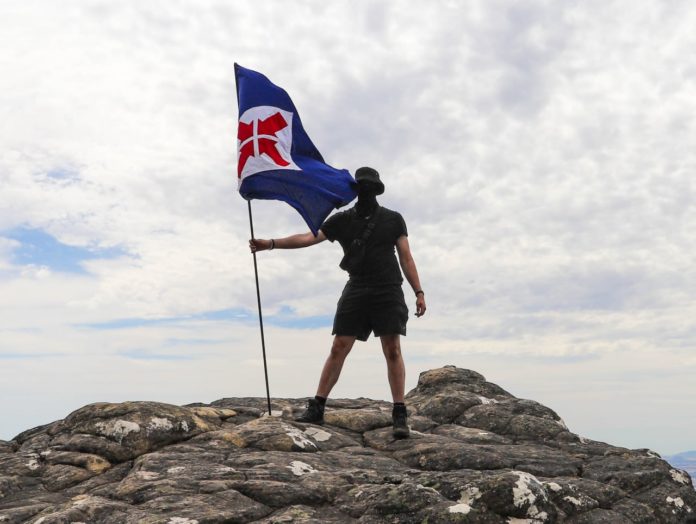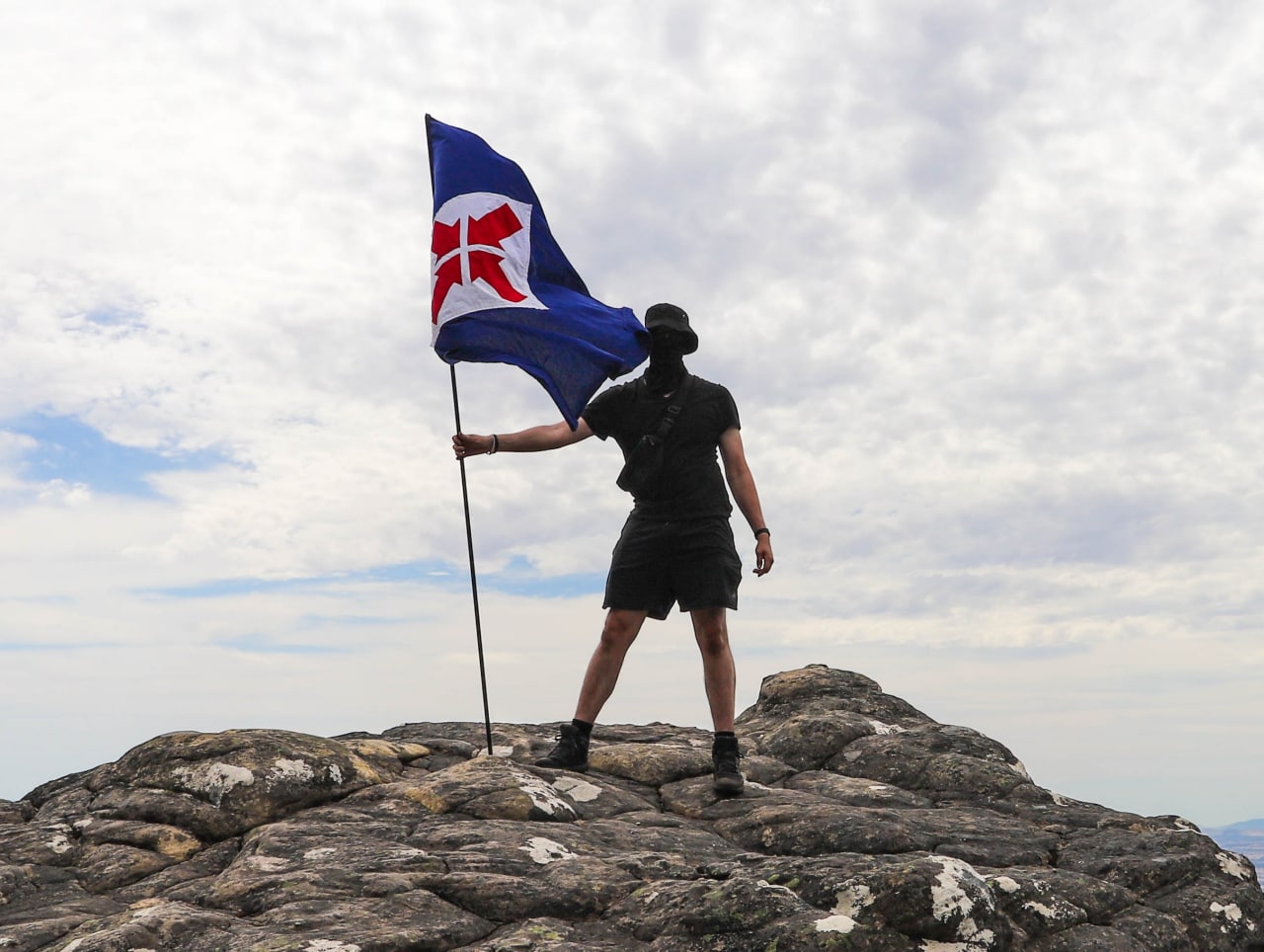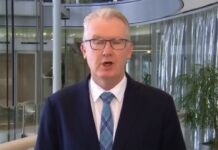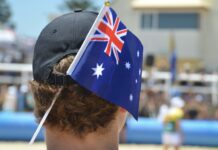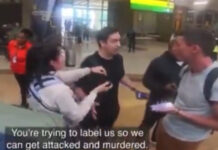When the government launched its “extremism inquiry” in December, we knew that its results would be a foregone conclusion. The government and media had spent an entire year deliberately whipping up hysteria over mythical Nazi terror cells hiding in every suburb, even when their own findings blatantly contradicted the narrative. When that didn’t get the desired result, the government destroyed the life of teenager Tyler Jakovac by parading him on television as a captured terrorist, even while conceding that he hadn’t done anything beyond saying stupid things on the internet.
This inquiry will be the penultimate stage of the White terror scare—the justification for why White Australians should have the remainder of their political rights stripped from them. The faithful servants of Israel have been quite open about their intentions. Senator Keneally, who sits on the committee, has said multiple times that she wishes to change the definition of terrorism, so that National Socialist Network can be designated a terrorist organisation without it ever having committed or incited violence.
Keneally is quoted as saying “we proscribe for two reasons, one because it gives our agencies tools to fight these groups, and two because it sends a clear message about what we as Australia reject, and so proscription is an important tool to say we as Australia reject the racist, hate-filled division, anti-democratic views of these organisations”.
So basically, Keneally believes that counter-terrorism legislation is not only for stopping and punishing terrorists, but also functions as a weapon against political dissidents who haven’t broken the law, when the government wants to send a message to the public that it doesn’t want any discussion of White replacement.
She has even said that certain individuals should be added to the proscription list, which would make it illegal for that person to have employment, a bank account or meet with their friends.
Regardless, we simply could not let their lies go unchallenged. So we wrote them a submission, outlining the full truth about “right-wing extremism” and questioning the premise of the inquiry’s terms of reference. The committee not only refused to accept it as a submission, but they also refused to even take it as correspondence. Nothing that goes against the Jew’s narrative can ever be allowed the sully the pure, innocent minds of our politicians!
We are therefore releasing our submission to the public, in the hope that at least some White Australians will realise the full extent of the crime currently being perpetrated against them by their own government.
The struggle goes on!
—————-
Committee Secretary
Parliamentary Joint Committee on Intelligence and Security
PO Box 6021
Parliament House Canberra ACT 2600
To whom it may concern,
I am the spokesman of the National Socialist Network, an activist organisation frequently slandered as “extreme,” and erroneously labelled a terrorist organisation by our political enemies. We feel the need to publicly challenge the assumptions raised in the terms of reference of the “Inquiry into extremist movements and radicalism in Australia”. This is because the responses of groups labelled as “extreme” are often missing from public debate on this topic, and we would likely be impacted by some of the changes proposed.
For background, our group advocates for Australian National Socialism as an alternative to liberal democracy. It does this through building a nation-wide network of local activism groups, educating its members on the National Socialist worldview, and conducting publicity campaigns to raise awareness of our cause. This strategy is based on the idea of metapolitics—we believe that no real political change is possible in this country until we have managed to successfully introduce our values and ideas in the public domain as an alternative. This does not involve violence, which would be damaging to our credibility as a legitimate political force.
Our comments on each aspect of this inquiry are below.
Comments Regarding the Terms of Reference
1. The nature and extent of, and threat posed by, extremist movements and persons holding extremist views in Australia.
National Socialist Network rejects the assertion that advocating for alternatives to liberal democracy constitutes “extremism”.
We also reject the notion that advocating for such alternatives can be equated with terrorism, or lead individuals to carry out such acts.
The only “threat” posed by National Socialist groups is political—that our worldview will replace the increasingly discredited ideology of liberal democracy.
a) the motivations, objectives and capacity for violence of extremist groups including, but not limited to, lslamist and far right-wing extremist groups, and how these have changed during the COVID-19 pandemic; and
There are no presently existing nationalist groups in Australia that encourage, or participate in, violence of any sort. Of the “right-wing extremists” charged with terrorism or political violence over the past five years, none have received backing from an organisation. Organised political violence in this country is the sole domain of Islamists and the extreme left.
b) the risk to the community of high risk terrorist offenders;
The only alleged terrorism offender that our organisation has come across, Tyler Jakovac, was a teenage fantasist. The police admit that he had made no preparations for a terrorist attack, and had done little more than promote provocative memes on social media. The risk he posed to people other than himself was negligible.
1. The geographic spread of these extremist movements and persons in Australia, and their links to international extremist organisations.
Nationalists, including National Socialists, believe in uniting our people from all classes and geographic areas of Australia. There is thus no bias in our recruiting and other activities towards certain areas.
All Australian nationalist organisations that we are aware of are exclusively controlled and funded by Australians. These organisations, including ours, naturally come into contact with friendly overseas organisations and individuals via the internet and other means. Expressions of mutual solidarity are about the limit of these links.
2. Without limiting the other matters that the Committee may consider, issues for specific inquiry are:
a. Changes that could be made to the Commonwealth’s terrorist organisation listing laws to ensure they are fit for purpose, address current and emerging terrorist threats, reflect international best practice, and provide a barrier to those who may seek to promote an extremist ideology in Australia;
This point makes the bizarre assertion that those who “seek to promote an extremist ideology” are the equivalent of terrorists. Counter-terrorism laws should be designed solely for the purpose of preventing terrorist attacks, and not for political theatre.
If the government wishes to ban certain political ideologies then it should do so openly, and not continue to claim that Australians have freedom of speech, conscience or political association.
b. Changes that could be made to Australia’s Counter-Terrorism Strategy in relation to preventing radicalisation to extremist views, including the capacity for further partnership approaches with state, territory and local governments;
It is difficult to understand why a supposedly liberal democratic system would be interested in stopping its citizens from holding certain political views. Nearly all political ideas have been considered to be extreme at one point, including many held as sacrosanct by today’s politicians.
We were always told by our government that under democracy, the people are supposed to influence the politics of parliamentarians, and not the other way around. If this isn’t the case then the government ought to honestly tell the Australian people that it wishes to control their political beliefs, instead of hiding behind the lie that it actually cares about what they think.
c. The role and influence of radical and extremist groups, which currently fall short of the legislative threshold for proscription, in fostering disharmony in Australia and as a conduit to persons on a pathway to extremism;
The government policies of multiculturalism and mass immigration have done more to foster disharmony in Australia and act as a “conduit to…extremism” than every radical group in the history of the country.
Mass immigration and multiculturalism are predicated on the idea that Australian identity is based on a set of abstract values, and not factors inherent in the individual. Indeed, it even posits that migrants can retain their own identities, languages and cultural practices (and sometimes their old citizenship) while at the same time becoming part of mainstream Australian society. In all recorded human history there has never existed a society in which vastly differing ethnic and cultural groups co-exist on terms of perfect equality, and for good reason.
To understand why, we must comprehend man on the societal and individual level. At the individual level, all human beings have certain permanent traits, which they gain from their genetic heritage, sex, family, language, culture and physical environment. These impact the individual’s physical and mental potential, the way they view the world, their interactions with others, their political and religious beliefs, their sense of self, and identity. It is not possible for an individual to change these traits, no matter how much they might wish to do so, for they will always view the change through the prism of a mind formed from these very same traits.
At the societal level the individual does not exist. Man can only derive meaning from his membership of an organically derived group, in which he acts as an organ in a larger social organism. This implies a natural self-segregation of peoples, for there can be no group without borders or outsiders. At the most primitive level this involves the tribe, escalating upward through history to religious groupings (Christendom, Dar al-Islam, etc), kingdoms, nation-states and finally race. Race is the highest form of organically derived human grouping, for beyond this lies mere abstractions on the basis of which no identification is possible. What all of these groupings share in common is that they are based on individuals sharing degrees of similarity among those unchangeable traits.
In other words, the abstract, individual man so beloved of liberal and Marxist theorisers does not exist. He is always rooted in his individual and social contexts. These factors cannot be changed via citizenship papers and promises to adhere to abstract values. People will still be drawn by their inherent traits into larger organic groups, which then compete with each other for survival as all organisms do. This does not end with the first generation of migrants, for in a multicultural society they not only retain the genetic and familial factor, but also the cultural and linguistic. This is not to suggest that “integration” is a solution, as it is ridiculous to expect individuals to be able to change inherent traits.
The end result of multiculturalism and mass immigration in Australia has therefore been predictable—the fragmentation of society into mutually competitive racial-cultural groups. In such a context, social harmony is impossible, and Australia as a whole is crippled. It can be likened to a person who has had every organ removed and replaced with donated organs, which the body is violently rejecting.
We must repeat, it is impossible to have harmony in a society which has been atomised and divided into mutually competing racial-cultural groups. Blaming political organisations with no influence on government for flawed government policies will not fix this problem.
d. Further steps that the Commonwealth could take to disrupt and deter hate speech and establish thresholds to regulate the use of symbols and insignia associated with terrorism and extremism, including online, giving consideration to the experience of other countries;
It seems incongruous to us that a state purporting to be a liberal democracy would attempt to “disrupt and deter” political speech of any kind. Criticising government policies such as multiculturalism, mass immigration and “diversity” programs is an integral part of public debate on these topics, no matter how sacrosanct certain politicians consider them to be. If Australia’s system of government is truly as universally supported as its rulers claim it is, then they should also have no problem with us advocating that this country change its political system to one better suited to the needs of its people, and the challenges of this period of Western Civilisation.
As for the second assertion, a ban on “symbols and insignia” would do absolutely nothing to prevent terrorism. Terrorism in Australia is implicitly rooted in the competition for resources and influence between racial and social groups, which is a direct result of multiculturalism and mass immigration. Symbols have little to do with the matter.
What’s more, terrorists who are determined to murder innocent people are unlikely to be deterred by the lesser punishment received for using said symbols. Such people are not generally renowned for their respect of the law.
e. Further steps the Commonwealth could take to reinforce social cohesion, counter violent extremism and address the growing diversification of extremist ideology in Australia;
We assess that the government is extremely unlikely to change the policies of multiculturalism and mass immigration, as they have reached the level of a secular religion for large sections of the ruling class. They are also greatly prized by large political donors, who wish to drive down wages and integrate this country into Asia for economic reasons. In the absence of these policies changing, no action that the Commonwealth could otherwise take is likely to counter the complete destruction of social cohesion which the Commonwealth’s own policies have achieved.
f. The role of social media, encrypted communications platforms and the dark web in allowing extremists to communicate and organise; and
All political organisations in the 21st century, outside of the major parties, organise primarily via social media and encrypted communications platforms. This begs the question of why the government is so interested in investigating citizens exercising their right to political association and free speech.
As for the so-called dark web, it is of little interest to us, as we have no desire to purchase illegal goods and services.
g. Any other matters related to these terms of reference, noting the roles and responsibilities of states and territories in Australia’s counter-terrorism arrangements, and constitutional limitations.
As we are not legal or counter-terrorism experts, we have no comment to pass on this.
I hope these comments have been enlightening for the committee.
We are happy to have representatives of National Socialist Network appear before the committee as witnesses, to explain our position further.
Kind regards,
Jacob Hersant
Spokesman
National Socialist Network
You can find NSN at Telegram. You can read the PDF of their submission here.

